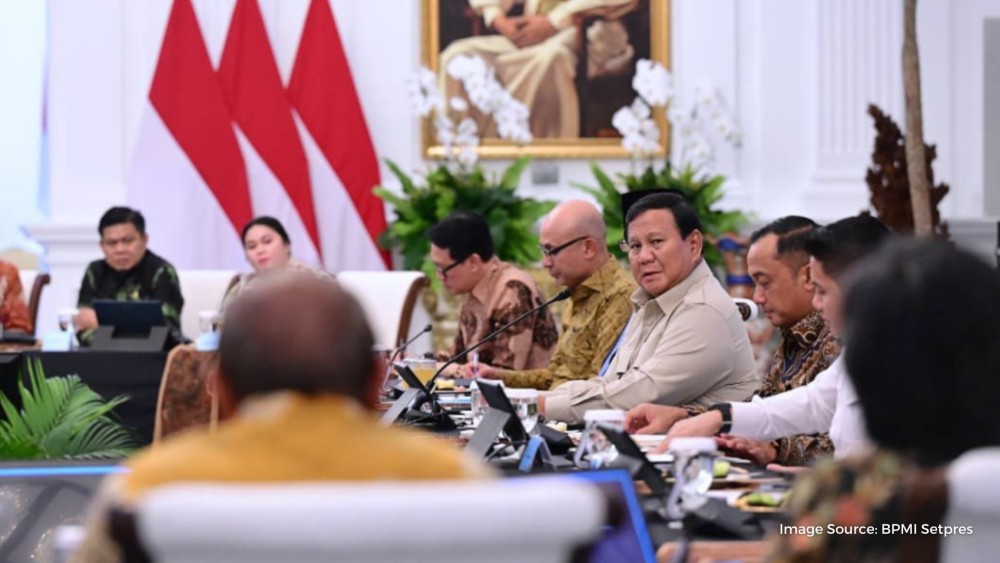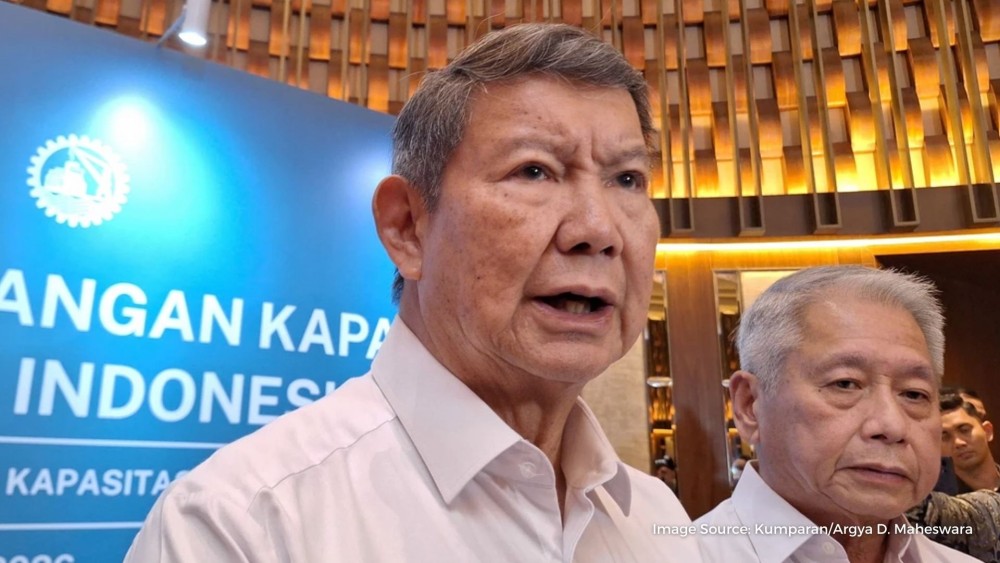This Week’s Headlines (Nov 18 – 24, 2023)
24 Nov 2023

Indonesia posts smaller c/a deficit in Q3 as export demand picks up
Indonesia's current account deficit narrowed in the third quarter as demand for exports recovered, the central bank said on Tuesday, with most economists expecting the central bank to leave interest rates unchanged this week as external balances improved.
The Southeast Asia's largest economy posted a $0.9 billion deficit in the third quarter, equivalent to 0.2% of gross domestic product, showing a marked improvement from the second quarter, when Indonesia registered its first quarterly deficit in two years.
Bank Indonesia's revised data for the second quarter deficit at US$2.2 billion, equivalent to 0.6% of GDP, Bank Indonesia's revised data showed.
Indonesia's monthly trade surpluses have been declining in value this year as prices of its top commodities like coal and palm oil weakened compared to a year ago.
BI noted a recovery in demand for iron and steel exports amid weakening global commodity prices.
The deficit in services also decreased in the third quarter, helped by the tourism sector's post-pandemic recovery, BI added.
A Reuters poll showed on Tuesday that 27 of 31 economists expected BI to keep its benchmark key interest rate unchanged at 6.00% when the central bank's two day policy review wraps up on Thursday. The remaining four predicted a quarter-percentage-point hike to 6.25%.
In October, BI unexpectedly hiked the benchmark interest rate by 25 basis points to 6.00% with focus on rupiah stability, taking its total rate increases since August 2022 to 250 bps.
Enrico Tanuwidjaja, a UOB economist, was among the outliers expecting BI to raise rates to keep the rupiah stable, though he viewed the smaller current account deficit as a "good development."
"Our view is still for BI to deliver a 25 bps rate hike this week, underpinned by a likely case of the Fed remaining hawkish, expectations of upside inflation risks, and wider yield gap," he said adding a forecast of another 25 bps rate hike in December, taking the terminal rate to 6.50%.
Aside from current account, the country's financial and capital account deficit also shrank to $0.3 billion in the third quarter from a deficit of $4.8 billion in the second quarter due to higher foreign loans for companies, offseting the capital outflow, BI said.
The smaller deficits in both current and financial accounts reduced the balance of payments deficit to $1.5 billion in the third quarter from $7.4 billion in the second quarter.
BI has forecast this year's current account to be between a surplus of 0.4% and a deficit of 0.4%.
The rupiah strengthened 0.03% to 15,435 per U.S. dollar by 0433 GMT on Tuesday.
Source: Reuters
BI maintains rates amid stable inflation outlook
Bank Indonesia (BI) has kept its benchmark interest rate unchanged as it projects a stable inflation outlook for this year and 2024 despite global economic uncertainty.
Following the two-day monthly monetary policy meeting, BI Governor Perry Warjiyo briefed the press that the BI 7-Day Repo Rate (BI7DDR) was to be kept at 6 percent for the time being.
“BI monetary policy, especially interest rates, are set based on inflation estimates for the next two years and [whether those are] in line with our target. It has always been done that way,” said Perry on Thursday.
Perry explained that the impact of rates on inflation would only be felt after four to six quarters, during which the country would be exposed to the risk of imported inflation, which should explain why BI decided to hike its rates last month.
Imported inflation, explained Perry, would mainly be driven by global energy and food prices susceptible to ongoing uncertainty stemming from geopolitics and climate change, as well as rupiah depreciation.
The central bank had kept the benchmark rate at 5.75 percent since January, before proceeding to hike it by another 25 basis points last month.
That decision was unexpected given that consumer price index (CPI) growth in Indonesia dropped to just 2.28 percent in September, marking a big step down from 3.27 recorded in the preceding month. October’s figure of 2.56 percent also showed that inflation in Indonesia was not concerning, as BI has a CPI growth target of 2-4 percent.
CPI growth in the archipelago has remained below 4 percent since June following a downward trend that began in February.
Perry said the central bank’s forecast for CPI growth in 2024 was 3.2 percent. That would still be within BI’s target range, despite the range being lowered to 2.5 plus or minus 1 percent for the upcoming year.
“That [figure] is still okay, with our rates. The 6 percent interest rates remained consistent with a preemptive, forward-looking [monetary policy stance] to ensure next year’s inflation does not exceed 3.2 percent,” said Perry.
Projections for global oil prices and the rupiah’s exchange rate were included in that forecast, he continued.
He went on to say that stabilizing the rupiah required monetary intervention considering how global pressure could mount, the way it did last month when the rupiah dropped to almost Rp 16,000 per United States dollar.
Perry said the possibility of a federal funds rate (FFR) hike during December’s Federal Open Market Committee (FOMC) meeting remained.
However, BI believed the probability of that happening was now just 10 percent.
“But, so far, with the information we have today, we are sure that 6 percent is adequate to reach next year’s inflation goal and to stabilize the rupiah exchange rate. We will reassess next month,” Perry stated.
Following the new minimum wage announcement on Tuesday, BI estimated that it would barely affect consumer prices and thus contribute only 0.04 percentage points to inflation.
Source: The Jakarta Post
Vale, Sumitomo Sign Initial Agreement to Sell 14% Stake in Indonesia Nickel Miner
Vale Base Metals said its Vale Canada unit and Japan's Sumitomo Metal Mining signed an initial agreement on Friday to sell a 14% stake in their Indonesian nickel mining unit to Indonesia's state miner.
Vale Canada and Sumitomo signed the so-called heads of agreement to sell the shares to PT Mineral Industri Indonesia (MIND ID), the country's state mining holding company, Vale Base Metals said in a statement.
Share divestment is a condition required by Indonesia to extend Vale Indonesia's mining permit, which will otherwise end in 2025. Foreign investors are required to divest 51% of their stakes to local buyers after a certain period of operation. The sales and purchase agreement is expected to conclude at the end of January, the deputy minister for state-owned enterprises, Kartika Wirjoatmodjo, told Reuters on Saturday.
"MIND ID is currently conducting a due diligence and will soon submit its price offer," he said.
Upon completion, MIND ID will become the largest shareholder of Vale Indonesia with its stake rising to 34% from 20%. Vale Canada will hold 33.9%, down from 43.79%, and Sumitomo 11.5%, down from 15.03%, according to the statement.
Around 20% of Vale Indonesia's shares are publicly traded.
A "balanced" management structure will be set up to maintain operational stability at the Indonesian unit, the statement said.
"We look forward to working within the new shareholding structure with our partners to support the country's downstreaming ambitions and deliver strong economic value to our stakeholders and communities over the long run," said Deshnee Naidoo, chief executive of Vale Base Metals.
Indonesian President Joko Widodo, who watched the signing, said the country welcomed the agreement and appreciated Vale's commitment to partner with Indonesia.
"The divestment will make MIND ID as the biggest shareholder of Vale (Indonesia), so MIND ID and Vale Canada can exercise a joint control over Vale (Indonesia)," he said in a statement on Friday.
Widodo expressed hope that Vale would increase its support for Indonesia's efforts to shift to cleaner energy.
Indonesia is keen to develop batteries and electric vehicles to take advantage of its rich nickel reserves.
Vale Base Metals is committing around $10 billion of investment in Indonesia over the next decade.
Source: Kontan






